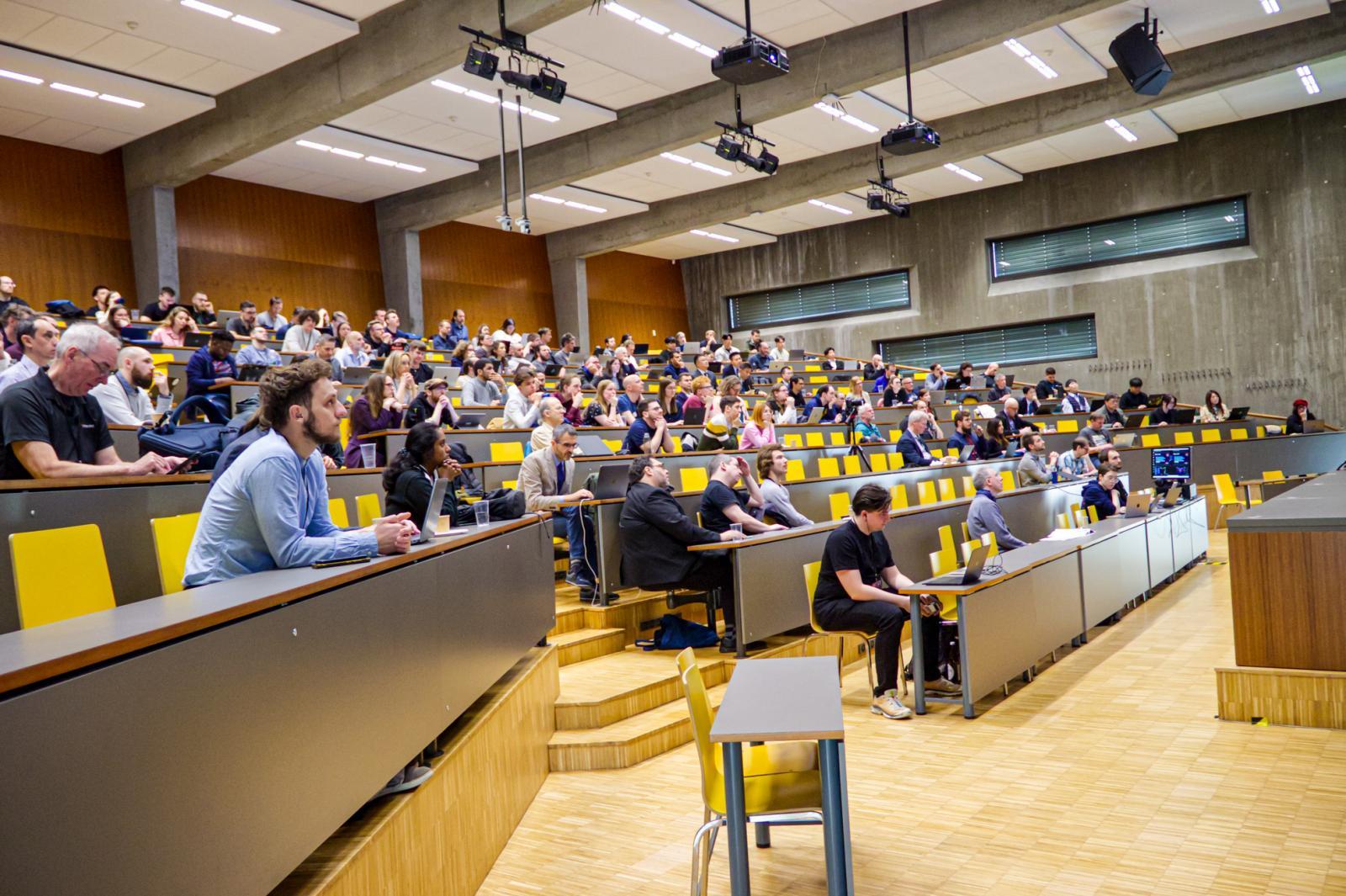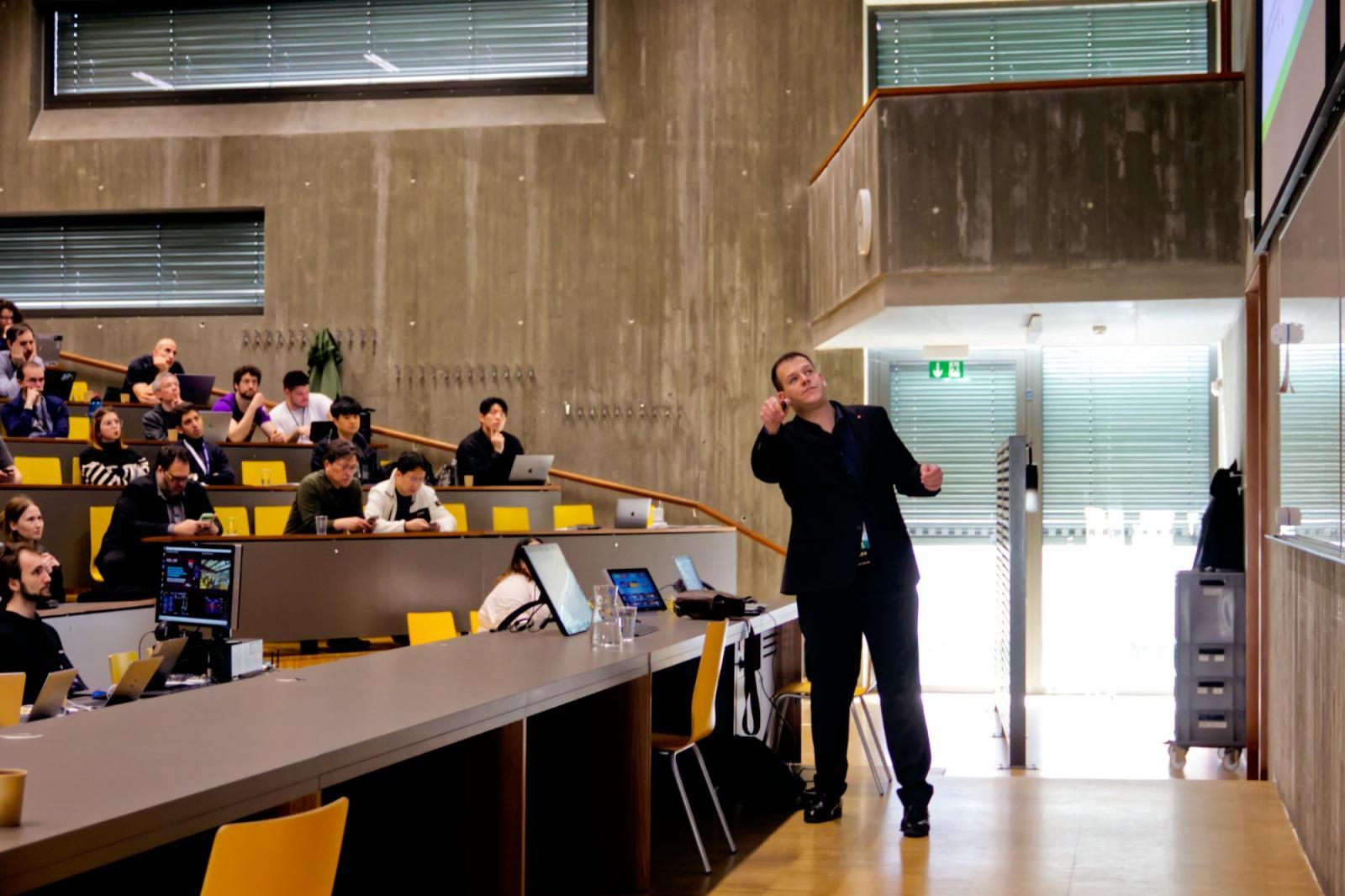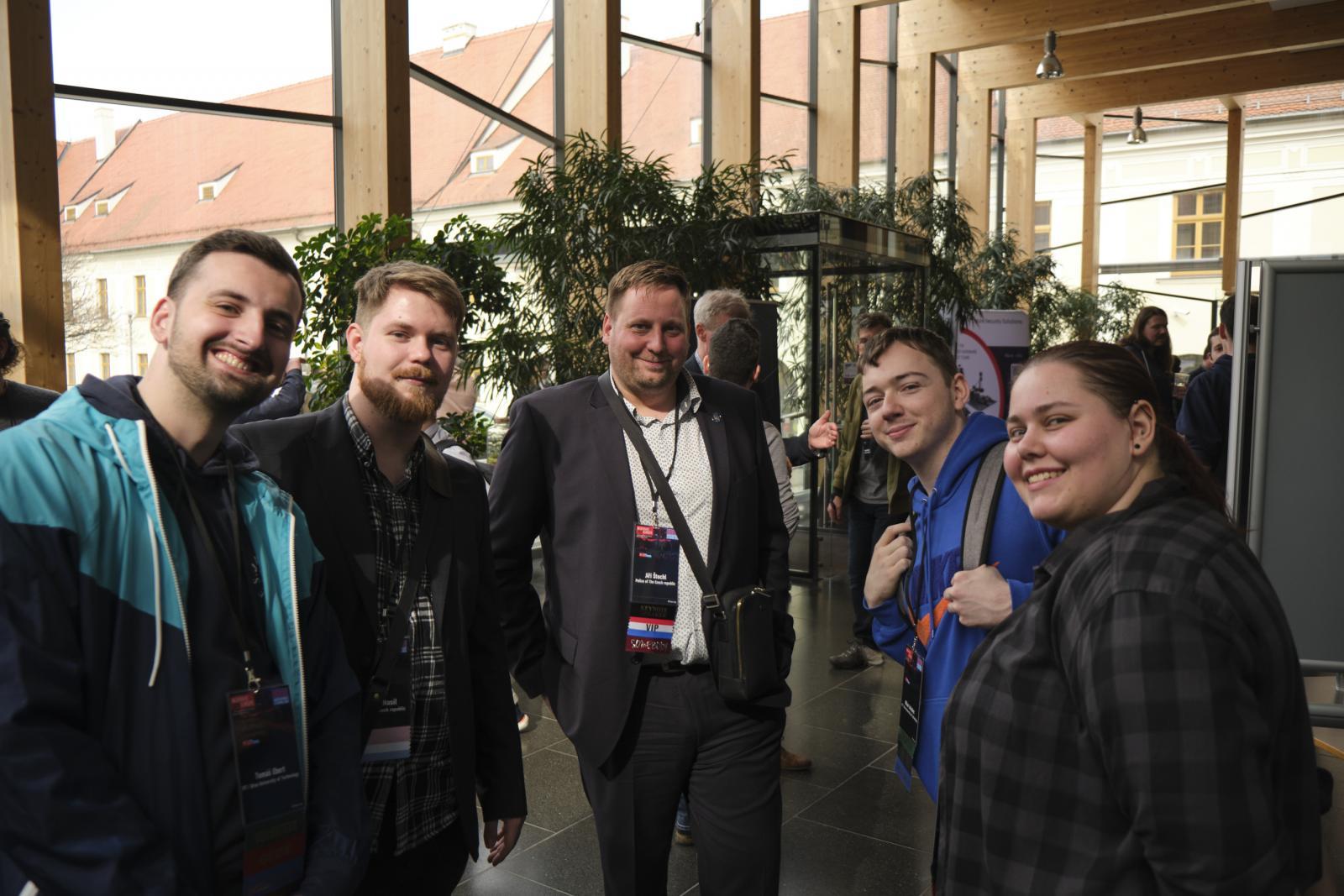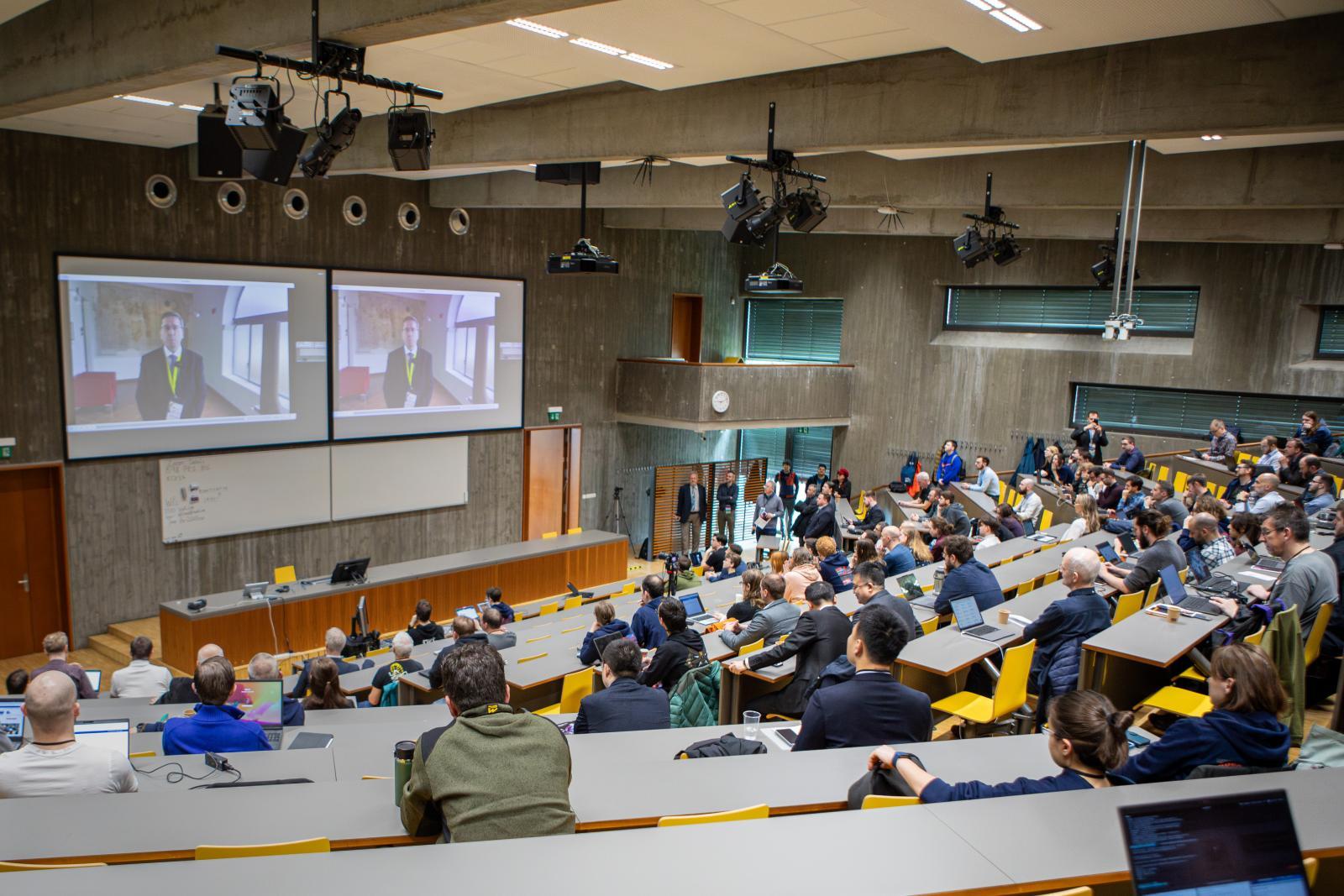Press Release
Day: 8 April 2025
The international conference on digital forensic analysis, DFRWS EU 2025, was held at FIT BUT
![[img]](https://www.fit.vut.cz/fit/news-file/d286698/DFRWS_2025-0009_1600.jpg)
(PR, Brno, April 8) The Faculty of Information Technology at Brno University of Technology (FIT BUT) hosted the international conference DFRWS EU 2025. It was the first time that this longest-running event in the field of global digital forensic research took place in the Czech Republic. More than 200 experts and enthusiasts from around the world gathered at the faculty, with another 39 joining remotely. In addition to the traditional program elements such as expert lectures and discussions, a unique workshop was held focusing on current challenges and issues faced by the police, the outcomes of which often form the basis of successful international projects.

The prestigious DFRWS (Digital Forensic Research Workshop) connects the academic community, experts, law enforcement representatives, and industry. This year, FIT BUT hosted the event thanks to its strong research background in cybersecurity. The event, which took place from April 1–4, was preceded by the affiliated workshop Women in Forensics Computing on the last day of March, bringing together women working in the forensic field. “Practice shows that women provide unique and extremely valuable insight into technical disciplines. The aim of this event was to connect experts from all over the world and enable them to share their knowledge. For example, Colonel Anika Stulíková presented her findings on behalf of the Police of the Czech Republic,” adds Radek Hranický from FIT BUT, who co-organized the conference with Ondřej Ryšavý and with the support of Ondřej Ondryáš.
Forensic procedures are primarily used in criminal investigations to trace evidence of criminal activity. Digital forensics deals with electronic devices. “For instance, when the police obtain a computer, mobile phone, or smartwatch belonging to a criminal, they try to extract as much information as possible to uncover details about the investigated case. They seek answers to questions like: Who? What? When? Where? Why? How? It's a bit like solving a puzzle – you look for small pieces that together complete the picture,” explains Radek Hranický. Beyond criminal proceedings, these procedures are also applied in cyberattack investigations or corporate investigations, such as when a company is trying to determine whether an employee violated internal rules and leaked confidential information outside the authorized circle.

The main goal of the conference is to connect research with practice and build a bridge between academic research and real-world application. A key topic of this year’s edition was the highly relevant use of artificial intelligence. Other thematic areas covered the latest methods in cyber forensic analysis and investigation, deepfake content detection, multimedia forensics, and the security of cloud and IoT systems. The program also included expert panel discussions on digital crime.
“Whenever someone performs an action on a digital device – launches a program, creates a file, sends a message – a record or trace of it is created somewhere. The trick is to find and recognize it, which is sometimes like looking for a needle in a haystack – and with the growing capacity of storage media, that haystack keeps getting bigger. Today, more and more content is encrypted, which adds further challenges,” comments Radek Hranický. DFRWS enables sharing of current knowledge among researchers and experts from various countries.

The event featured leading cryptography expert Dr. Iwen Coisel from EUROPOL, who presented the development of a decryption platform. A forensic case study was presented by Colonel Jiří Štochl, head of the Department of Cybercrime and Electrical Engineering at the Criminalistic Institute of the Police of the Czech Republic. He introduced the IT Forensics department of the Czech Police and data acquisition processes, including expert evidence procedures. He focused on a wide range of devices from mobile phones and servers to aviation systems and wearable electronics, and shared a real-life criminal case study. Colonel Štochl praised both the scientific contribution of the conference and the meticulous organization and involvement of university students.

On the first day of the conference, a unique Practitioner Challenges for Academics – Discussion and Idea Generation Workshop took place, where researchers explored solutions to current challenges faced by the police. The workshop featured experts from the Netherlands Forensic Institute, European CyberCrime Centre at Europol, National Police Chiefs Council from the UK, and the Criminalistic Institute of the Czech Police. The discussions resulted not only in interesting insights but also laid potential foundations for future research projects and international cooperation. One such project from previous years is the “Alliance for developing, teaching and training Digital Forensics and Incident Response students and practitioners,” in which several European universities, including BUT, were involved.

The conference also featured the first-ever Digital Forensics Doctoral Symposium (DFDS), organized by Professor Frank Breitinger from the University of Augsburg in Germany, aimed at knowledge sharing among young researchers. An integral part of the accompanying program was also the Forensics Rodeo CTF hackathon competition, during which teams of 4–5 people investigated a fictional criminal case. The NÚKIB forensic team helped with the competition testing. NÚKIB, along with the Minister of Justice of the Czech Republic Pavel Blažek, Mayor of Brno Markéta Vaňková, Rector of BUT Ladislav Janíček, and Dean of FIT Petr Hanáček, took patronage over the conference.
“It is a great honor for us to host the DFRWS EU conference, which holds extraordinary prestige in the world of digital forensics. The participation of experts from all over the world confirms that FIT BUT is a respected partner in cybersecurity and digital crime research. We believe that the conference not only contributed to the exchange of knowledge between academics and practitioners but also fostered new international collaborations,” stated Petr Hanáček, Dean of FIT BUT.
Author: Šmídková Kamila, Mgr.
Last modified: 2025-04-08 16:45:00